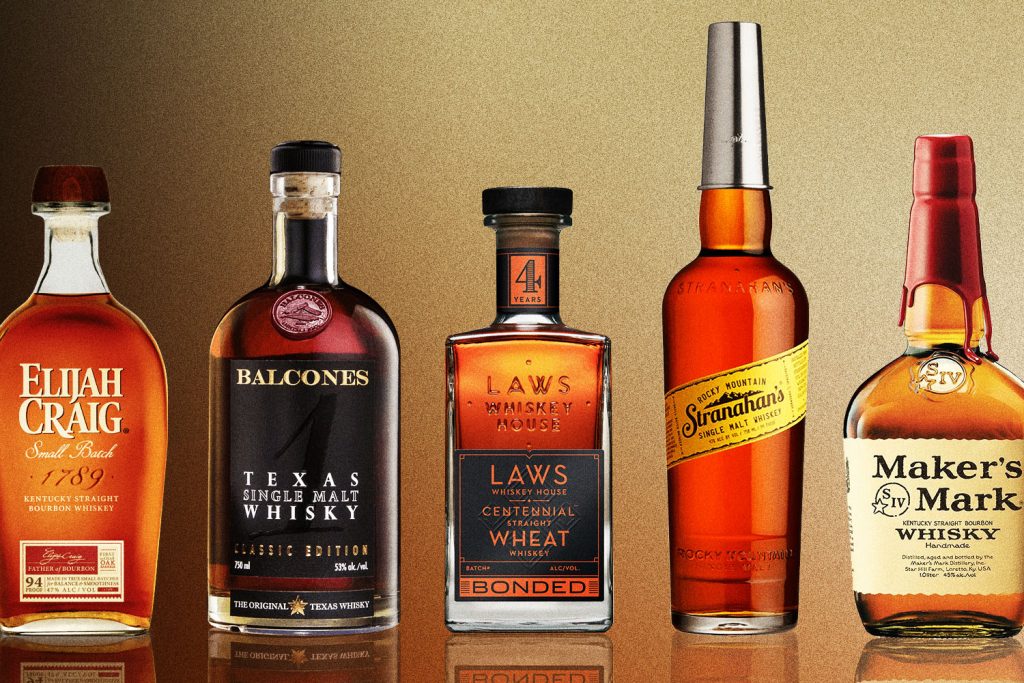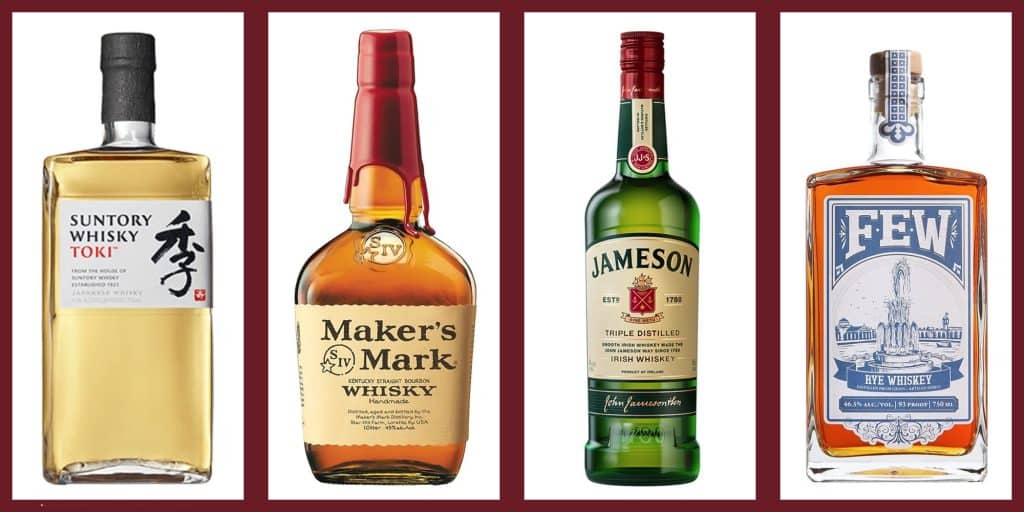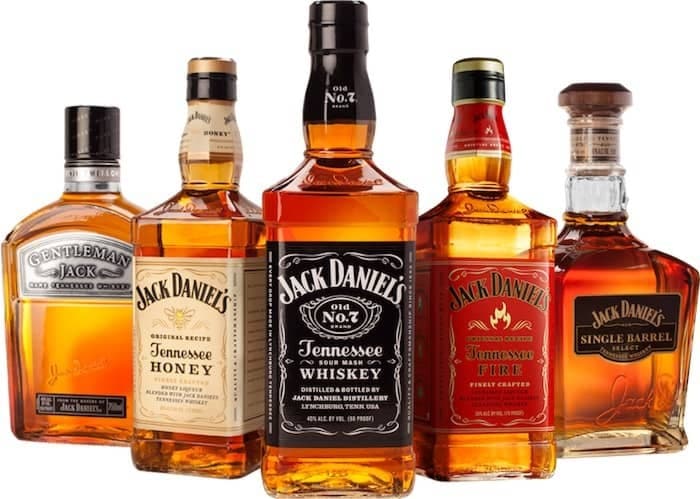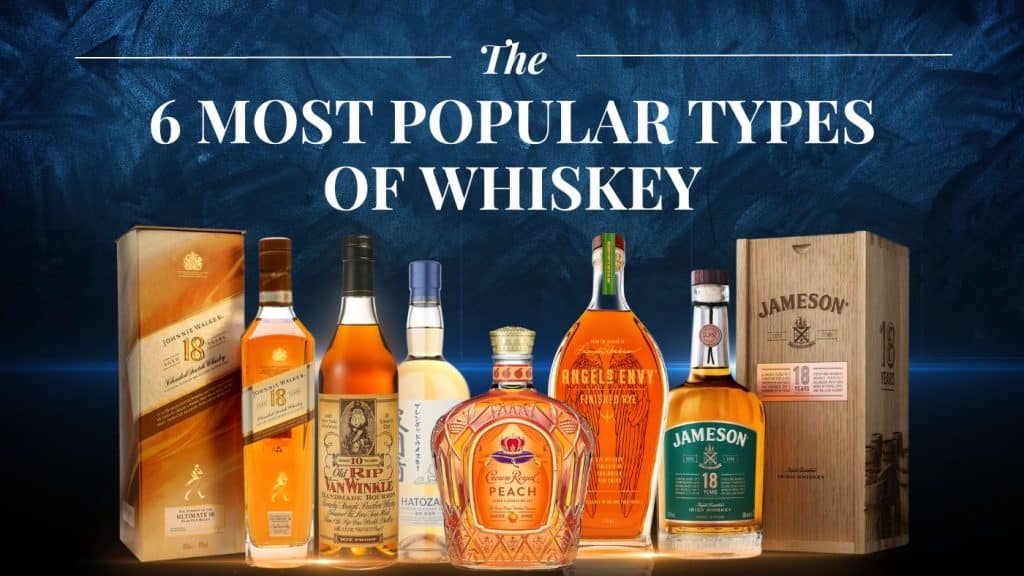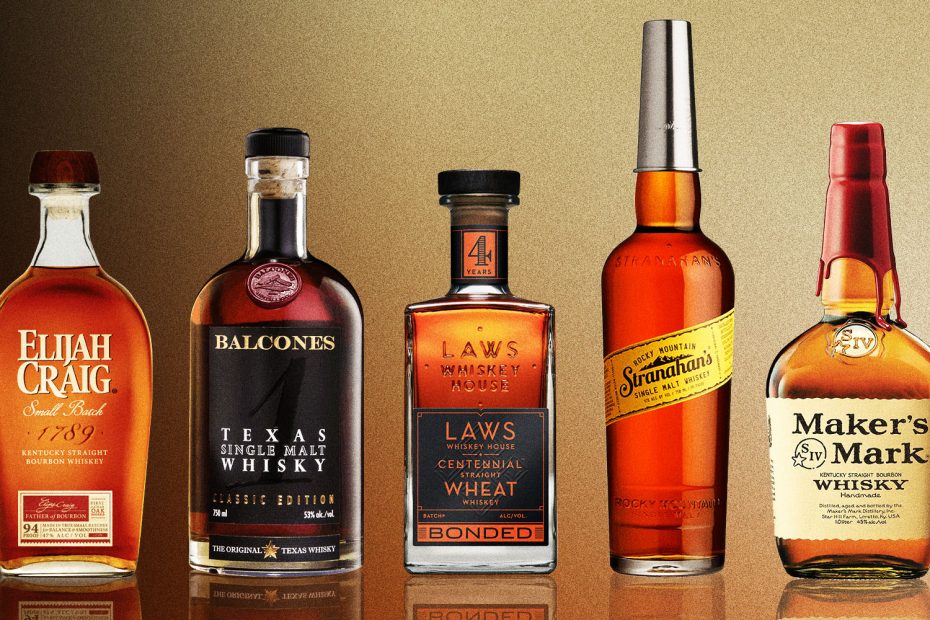Ladies and gentlemen, we find ourselves on a quest to uncover the ultimate question: what is the most popular whisky? As enthusiasts of fine spirits, the pursuit of this knowledge has become a cherished mission of ours. Through a journey filled with countless tastings, knowledgeable conversations, and observations from the world of whisky, we aim to reveal the answer that has intrigued connoisseurs for ages. Prepare to embark on an intriguing exploration of the realms of whisky, one that will leave you eager to raise a glass and delve into the captivating world of this beloved spirit.
Types of Whisky
When it comes to whisky, there are several different types to choose from, each with its own distinct characteristics and flavors. From the smoky depths of Scotch whisky to the smooth sweetness of Bourbon, exploring the world of whisky is a delightful journey for the taste buds. In this article, we will take a closer look at some of the most popular types of whisky, including Scotch whisky, Bourbon whiskey, Irish whiskey, Canadian whisky, and Japanese whisky.
Scotch Whisky
Scotch whisky is often regarded as the epitome of whisky excellence. Made in Scotland, this type of whisky has a rich history and a unique production process that sets it apart from others. Scotch whisky can be further divided into different subcategories, each offering its own range of flavors and styles.
Single Malt Scotch
Single malt Scotch whisky is made from malted barley, distilled at a single distillery, and aged in oak barrels for a minimum of three years. This type of whisky is known for its complex flavors and aromas, with hints of fruits, spices, and sometimes a distinctive smokiness. Single malt Scotch whisky is highly revered by whisky connoisseurs around the world.
Blended Malt Scotch
Blended malt Scotch whisky, also known as pure malt or vatted malt, is a combination of single malt whiskies from different distilleries. This blending process allows for a greater variety of flavors and character to be present in the final product. Blended malt Scotch whisky offers a balance between the individual characteristics of different single malts, resulting in a harmonious and well-rounded whisky.
Single Grain Scotch
Single grain Scotch whisky is made from grains other than barley, such as wheat or corn. Despite its name, “single grain” does not refer to a whisky made from a single grain but rather to a whisky made at a single distillery. Single grain Scotch whisky is typically lighter in flavor compared to single malt whisky, with notes of vanilla, caramel, and delicate spices.
Blended Grain Scotch
Blended grain Scotch whisky is a blend of single grain whiskies from multiple distilleries. This type of whisky brings together different grains and distillation techniques to create a smooth and accessible whisky, often with a lighter and sweeter flavor profile. Blended grain Scotch whisky is a popular choice for cocktails and as an introduction to the world of whisky.
Blended Scotch Whisky
Blended Scotch whisky is a combination of both single malt and single grain whiskies. The art of blending allows for a wide range of flavors and styles, as well as consistency in taste from batch to batch. Blended Scotch whisky is often seen as a gateway whisky, appealing to a broad range of palates and offering a versatile drinking experience.
This image is property of www.insidehook.com.
Bourbon Whiskey
Bourbon whiskey is a cornerstone of American spirits, embodying the rich history and tradition of the United States. With its deep amber color, sweet and full-bodied flavor, and hints of vanilla and caramel, Bourbon is a favorite among whisky enthusiasts worldwide.
The Origins of Bourbon
Bourbon whiskey has its roots in the early days of American history. It is believed to have been first produced in the late 18th century in what is now the state of Kentucky. The name “Bourbon” itself is derived from Bourbon County, Kentucky, where the whiskey was originally made.
Traditional Bourbon vs. Tennessee Whiskey
While Bourbon whiskey and Tennessee whiskey share many similarities, there are some important distinctions between the two. Both types of whiskey are made primarily from corn, but Tennessee whiskey undergoes an additional charcoal filtering process known as the Lincoln County Process. This process, unique to Tennessee whiskey, gives it a distinct flavor and smoothness.
Popular Bourbon Brands
There are numerous Bourbon brands available in the market, each offering its own flavor profile and character. Some of the most popular Bourbon brands include Maker’s Mark, Jim Beam, Wild Turkey, and Woodford Reserve. These brands have become synonymous with quality and are trusted by whisky enthusiasts worldwide.
Irish Whiskey
Irish whiskey is known for its smooth and gentle character, making it a beloved choice for both newcomers to whisky and seasoned connoisseurs. With its long and storied history, Irish whiskey holds a special place in the hearts of whisky enthusiasts.
The Distinction of Irish Whiskey
One of the defining characteristics of Irish whiskey is its triple distillation process. Unlike Scotch whisky, which is typically distilled twice, Irish whiskey is distilled three times, resulting in a smoother and lighter spirit. This production method gives Irish whiskey its signature smoothness and approachability.
Irish Single Malt
Irish single malt whiskey is made exclusively from malted barley and distilled in a single distillery. It offers a range of flavors and aromas, from fruity and floral notes to hints of honey and spice. Irish single malt whiskey is often regarded as a lighter alternative to its Scottish counterpart.
Irish Pot Still
Irish pot still whiskey is a unique style of whisky that combines both malted and unmalted barley in its production. This method creates a distinct and robust flavor profile, with spicy and fruity notes. Irish pot still whiskey is a testament to the rich heritage and craftsmanship of Irish whiskey production.
Irish Blended
Irish blended whiskey is the most common style of Irish whiskey, accounting for the majority of whiskey produced in Ireland. This type of whiskey combines both malted and unmalted barley with other grains, resulting in a versatile and balanced spirit. Irish blended whiskey is often smooth, approachable, and suitable for a range of drinking occasions.
Popular Irish Whiskey Brands
When it comes to Irish whiskey, there are several well-known brands that have gained global recognition. Jameson, Bushmills, and Tullamore Dew are among the most popular Irish whiskey brands, offering a range of expressions to suit different tastes and preferences. These brands have played a significant role in shaping the global perception and popularity of Irish whiskey.
This image is property of s.yimg.com.
Canadian Whisky
Canadian whisky, also known as rye whisky, has a distinct character and flavor profile that sets it apart from other types of whisky. Known for its smoothness and versatility, Canadian whisky has gained a loyal following both in Canada and around the world.
Unique Characteristics of Canadian Whisky
One of the unique characteristics of Canadian whisky is its use of rye grains in the production process. Rye gives Canadian whisky its distinct flavor profile, with notes of spice, fruit, and sometimes a hint of sweetness. Canadian whisky is also known for its smoothness, often due to its longer aging periods.
Flavor Profile of Canadian Whisky
Canadian whisky offers a wide range of flavors, from light and delicate to bold and complex. Some Canadian whiskies have a mellow and nuanced character, while others showcase a more robust and vibrant profile. This versatility makes Canadian whisky a popular choice for both sipping and mixing in cocktails.
Popular Canadian Whisky Brands
In the world of Canadian whisky, there are a few notable brands that have gained recognition for their quality and craftsmanship. Canadian Club, Crown Royal, and Lot No. 40 are among the most popular Canadian whisky brands, each offering a unique range of expressions that showcase the diversity of Canadian whisky.
Japanese Whisky
Japanese whisky has gained significant attention and acclaim in recent years, captivating whisky lovers around the world with its craftsmanship and attention to detail. Known for its elegance, complexity, and impeccable production methods, Japanese whisky has become a global sensation.
Japanese Whisky Production
Japanese whisky production draws inspiration from Scotch whisky, with a focus on traditional whisky-making techniques. The process involves mashing, fermentation, distillation, and aging in oak barrels. Japanese distilleries often prioritize quality and craftsmanship, resulting in whiskies with exceptional depth and character.
Styles of Japanese Whisky
Japanese whisky can be categorized into several styles, each offering its own unique flavors and characteristics. Single malt whisky, blended malt whisky, blended whisky, and grain whisky are all produced in Japan, showcasing the diverse approach to whisky production. Japanese whisky often exhibits a delicate balance of flavors, with notes of fruits, flowers, and oak.
Rise in Popularity of Japanese Whisky
In recent years, Japanese whisky has gained international recognition and popularity, with awards and accolades being bestowed upon Japanese distilleries. The combination of exceptional craftsmanship, attention to detail, and unique flavor profiles has contributed to the rise of Japanese whisky as a sought-after spirit. Whisky enthusiasts worldwide have embraced Japanese whisky for its elegance and exquisite taste.
This image is property of hips.hearstapps.com.
Factors Influencing Popularity
The popularity of whisky is influenced by various factors, including taste and flavor profile, marketing and branding efforts, international recognition, and cultural and historical significance. These factors play a crucial role in shaping consumer preferences and driving the popularity of whisky worldwide.
Taste and Flavor Profile
The taste and flavor profile of whisky significantly impact its popularity. Whiskies that offer a unique and enjoyable drinking experience tend to attract a large following. From the smoky and peaty flavors of Scotch whisky to the sweet and caramel notes of Bourbon, the taste preferences of individuals vary, contributing to the diverse range of whisky popularity.
Marketing and Branding
Effective marketing and branding efforts also play a significant role in the popularity of whisky. Brands that successfully communicate their values, heritage, and quality to consumers are likely to see increased demand. The creation of compelling narratives and appealing packaging can make a whisky stand out in a crowded marketplace.
International Recognition
Recognition on an international level, such as awards and accolades, can greatly influence the popularity of whisky. A whisky that receives critical acclaim and positive reviews from experts and enthusiasts is likely to gain attention and attract a wider consumer base. International recognition serves as a testament to the quality and craftsmanship of a whisky.
Cultural and Historical Significance
The cultural and historical significance of whisky can also contribute to its popularity. Whisky has deep roots in various countries and regions, often serving as a symbol of national pride and heritage. The rich history and traditions associated with whisky production can make it a cherished spirit, driving its popularity among both locals and tourists.
Global Popularity Rankings
In the world of whisky, certain brands have achieved significant popularity and success, becoming renowned for their quality and consistency. These brands have captured the hearts and palates of whisky enthusiasts, cementing their place as some of the best-selling whisky brands worldwide.
World’s Best-Selling Whisky Brands
Among the world’s best-selling whisky brands, names like Johnnie Walker, Jack Daniel’s, and Jameson consistently rank at the top. These brands have established themselves as household names and enjoy a strong global presence. Their diverse range of expressions and consistent quality makes them a preferred choice for whisky lovers around the world.
Most Popular Whisky by Country
Whisky preferences can vary from country to country, with certain brands and styles being more popular in specific regions. For example, Scotch whisky holds a prominent position in Scotland, while Bourbon whiskey enjoys a strong following in the United States. Canadian whisky is beloved in Canada, and Japanese whisky has gained significant popularity both domestically and internationally.
This image is property of uswhiskeyreport.com.
Whisky Trends and Preferences
Whisky trends and preferences are constantly evolving, with new styles and expressions capturing the attention of enthusiasts. Understanding these preferences can provide valuable insights into the ever-changing world of whisky.
Age Statement Whisky
Age statement whisky, indicating the number of years it has been aged in oak barrels, has long been a marker of quality and excellence. Whisky enthusiasts often appreciate the depth and complexity that comes with longer aging periods. However, there has been a growing trend in recent years towards non-age statement whiskies, which focus more on flavor profiles and unique production techniques.
Cask Strength Whisky
Cask strength whisky is bottled directly from the barrel, without dilution or adjustment of alcohol content. This results in a whisky with a higher alcohol percentage and a more intense flavor profile. Cask strength whiskies have gained popularity among enthusiasts who enjoy the bold and powerful experience they offer.
Flavored Whisky
Flavored whisky has become a rising trend in the whisky industry. By infusing whisky with different flavors such as fruits, spices, or even chocolate, distilleries aim to create new and unique drinking experiences. Flavored whiskies cater to a wide range of palates and preferences, expanding the appeal of whisky to new audiences.
Craft and Independent Whisky
Craft whisky and independent bottlings are gaining traction in the whisky market. These smaller-scale distilleries and bottlers focus on producing limited quantities of high-quality whiskies, often with a strong emphasis on traditional production methods and unique flavor profiles. Craft and independent whiskies offer enthusiasts the opportunity to explore new and innovative expressions outside of the mainstream market.
Conclusion
With its rich history, diverse flavors, and global appeal, whisky continues to captivate the hearts and palates of people around the world. From the prestigious single malts of Scotland to the smooth and iconic Bourbons of America, each type of whisky has its unique character and charm.
Popularity in the whisky world is driven by various factors, including taste preferences, effective marketing, international recognition, and cultural significance. As whisky trends and preferences evolve, new styles and expressions continue to emerge, enticing enthusiasts with exciting and innovative experiences.
Whether sipping a delicate Japanese whisky or savoring the robust flavors of a peaty Scotch, the world of whisky offers a multitude of choices for every discerning palate. So raise a glass, explore the captivating world of whisky, and embark on a journey of flavor, tradition, and craftsmanship. Cheers to whisky!
This image is property of www.nestorliquor.com.
